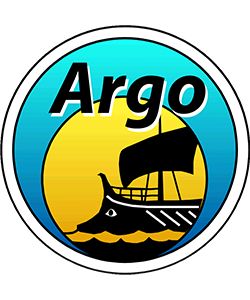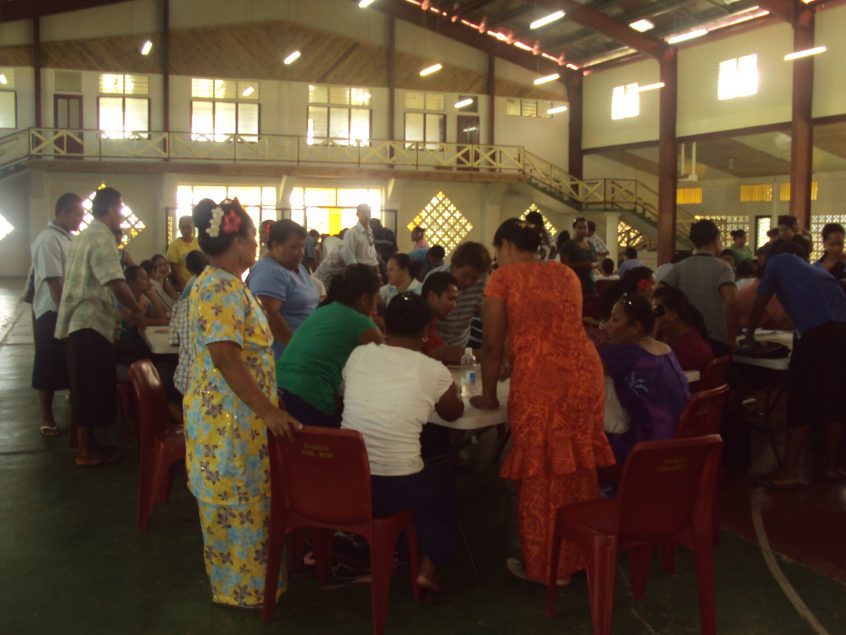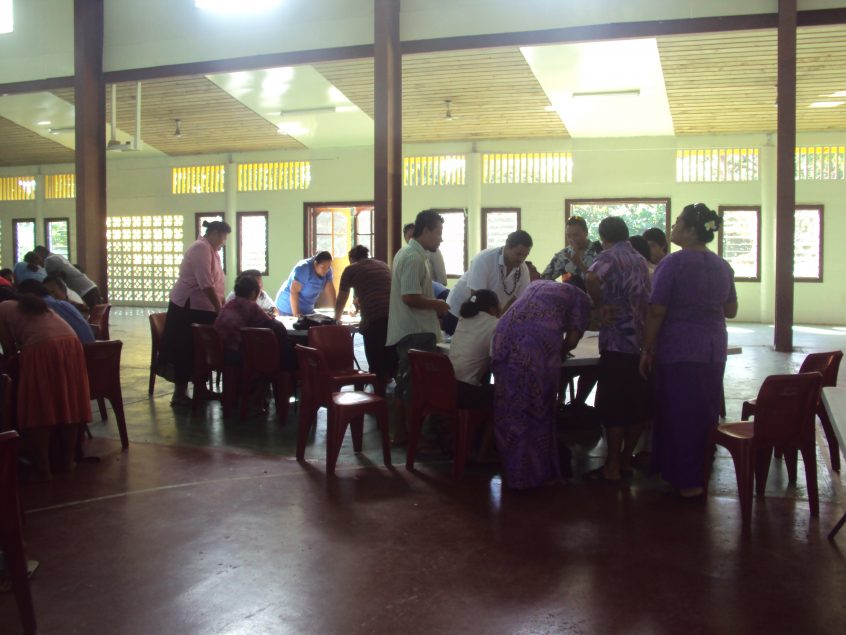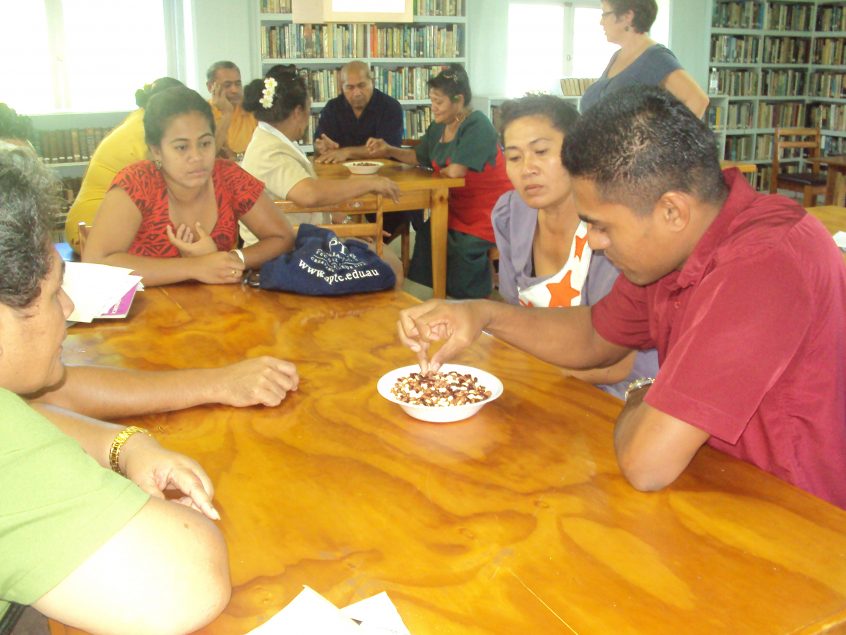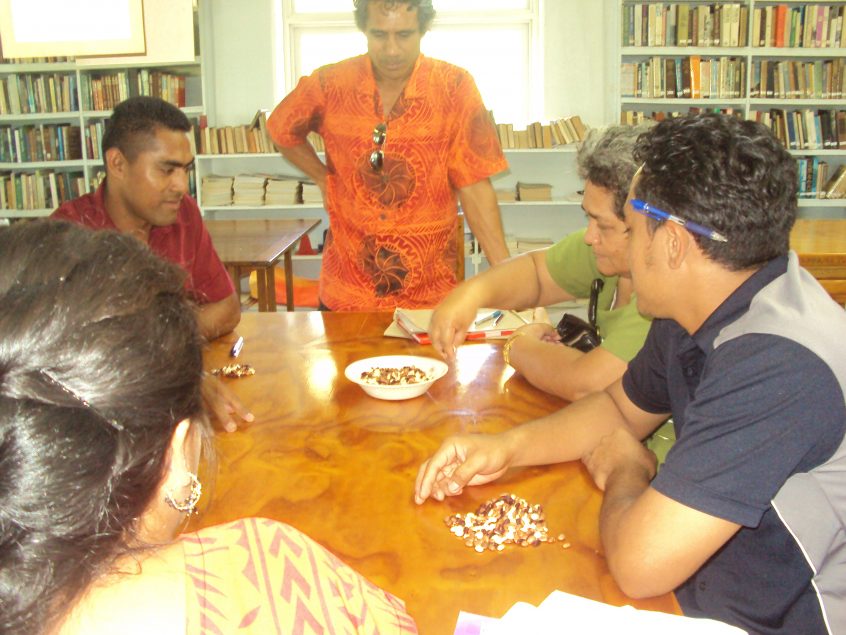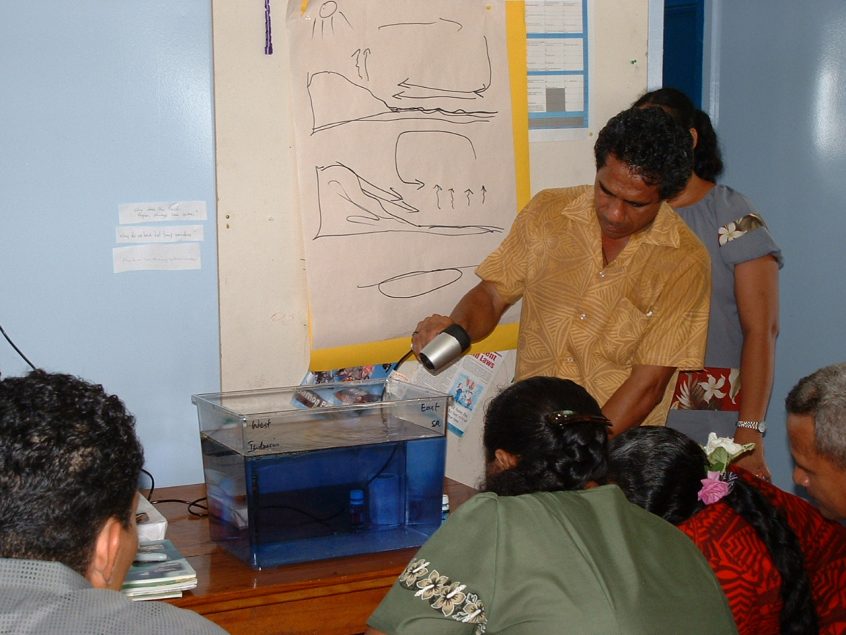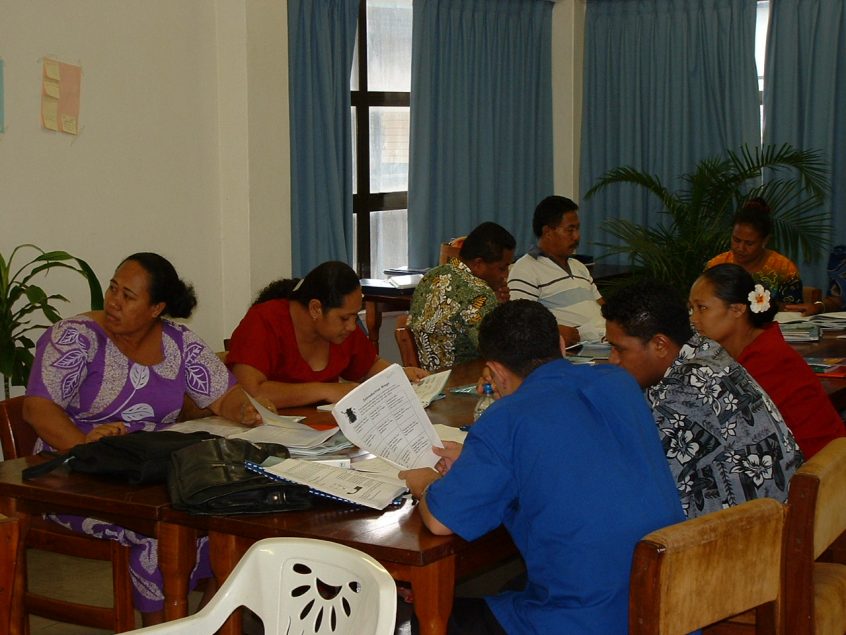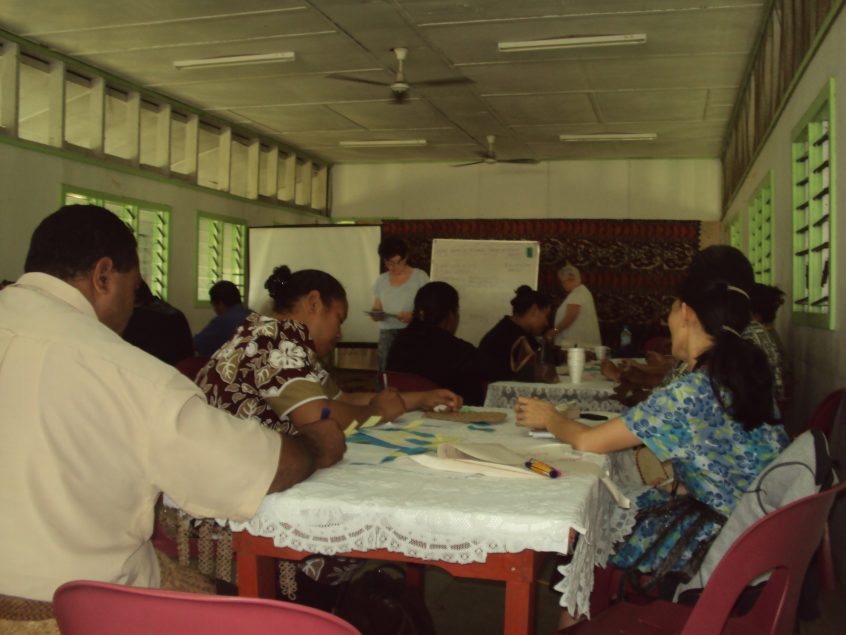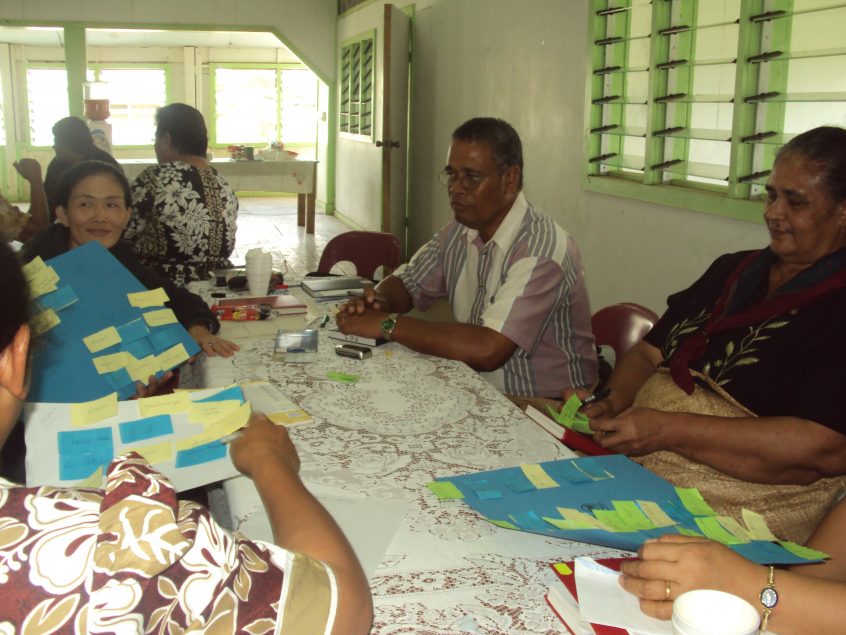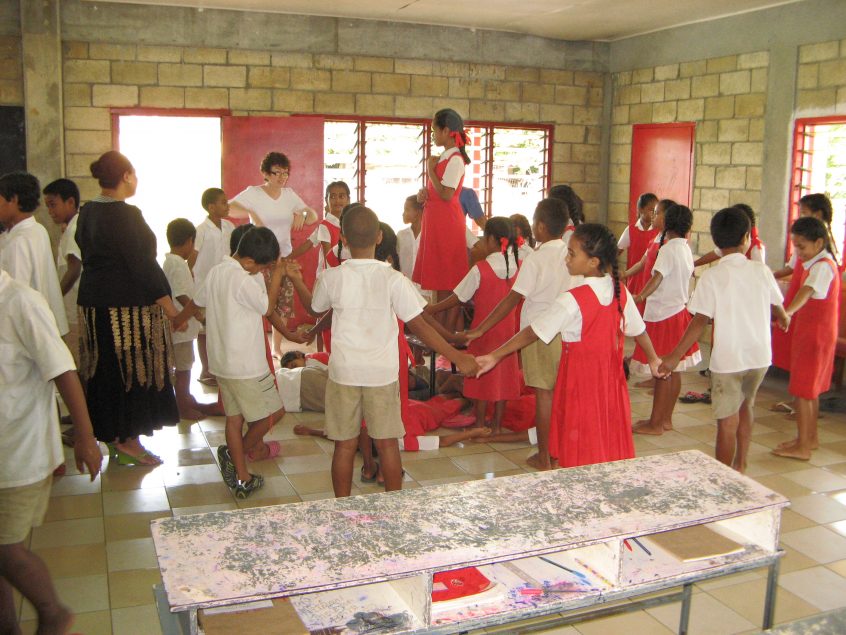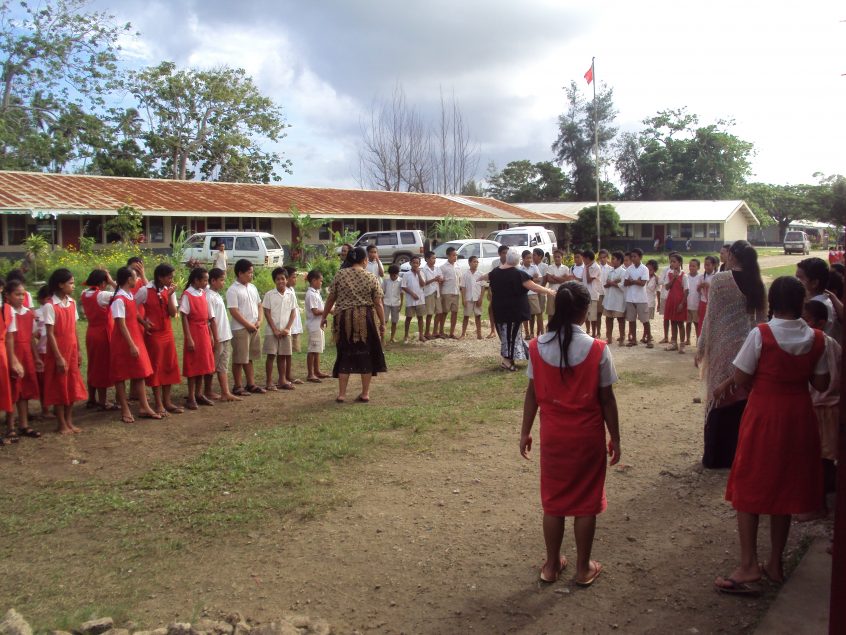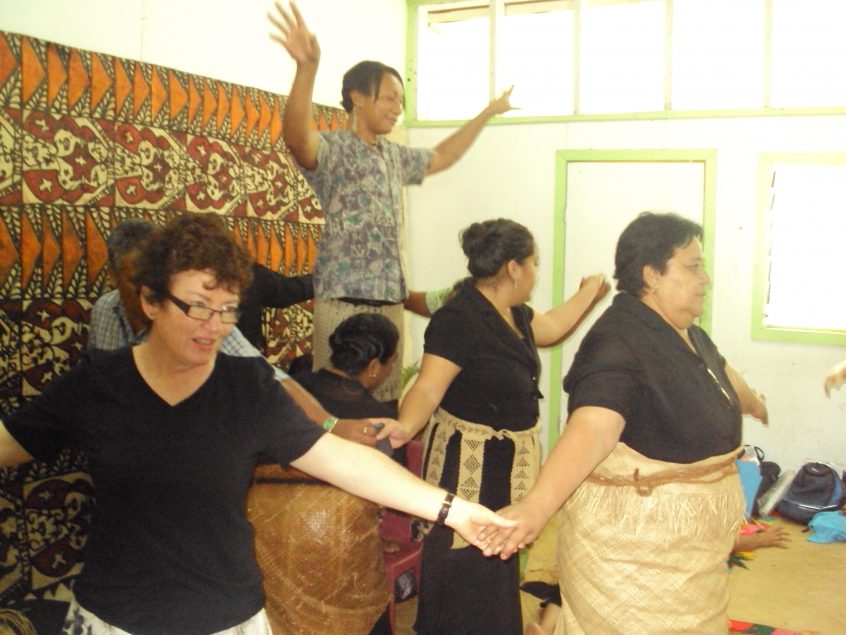What is SEREAD and why do we need it?
SEREAD Objective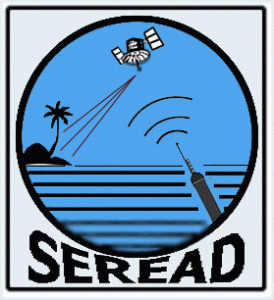
SEREAD (Scientific Educational Resources and Experience Associated with the Deployment of Argo profiling floats in the South Pacific Ocean) is an educational program and resource that provides regionally relevant and focused ocean science that is built upon Argo data in a format that fits directly into existing curricula of Pacific Island schools. SEREAD teaches basic scientific fundamentals in a hands-on approach using examples that build on Pacific students’ everyday observations and experiences. Having Argo data freely available to all makes it an ideal real world database for an educational program that aims to excite students and inspire them to study and understand the physical world around them. The program facilitates interactions and discussions between today’s ocean and climate scientists, teachers and students, and tomorrow’s leaders on the important connections between the ocean, land and climate of the Pacific Island Region.
Management and Support
Direction and oversight for the SEREAD Program is provided by the SEREAD Steering Committee, including experts from inside and outside the Pacific Islands region (SOPAC, UNESCO, IOC, Scripps, NIWA and others). The Program is presently managed by Dr J Hall (NIWA/NZ). Two teachers, K Hartle (Dargaville High School, NZ) and C Young (Auckland University, NZ), have been responsible for development of the teaching and resource materials and for conducting teacher training workshops in the islands. Support for SEREAD has included contributions from SOPAC, UNESCO, IOC, IOI, NIWA, and POGO.
Implementation
SEREAD will eventually consist of 4 units tailored for the requirements of existing primary and secondary school curricula in Pacific Island nations. The units developed so far are: (1) What is Weather for lower primary school, (2) What is Climate for upper primary school, and (3) Oceans Rising a unit on sea level for lower secondary school. The final unit to be developed will focus on climate change. Topics will include the role of the oceans in the climate system and on ocean-related hazards to society (storm surge, tsunami, climate change impacts such as tropical cyclone intensification, etc.). All units consist of literacy, practical and experiential activities that can be adapted for students aged 7 to 17 and are aimed at supporting teachers’ development of science units adapted to meet their student needs.
SEREAD is being introduced into the Pacific Island school systems through cooperative arrangements with the local Ministries of Education. SEREAD teacher training workshops have already been conducted in the Cook Islands, Samoa and Tonga, with follow-up workshops held in Samoa and the Cooks as well as follow-up visits to teachers in the Cooks. More workshops will be held in Tonga during 2011. Initial SEREAD workshops have focused on the training of teachers. Follow-up activities are for training of island- based teacher-trainers and for assessment and feedback on results of SEREAD units. Time is also spent working with local educators to incorporate the science surrounding climate change into the current science curriculum. Most SEREAD funds are spent on staging the workshops and for transportation and expenses of local teachers to attend.
The feedback received so far from participants has been very positive. Most teachers reported that the workshops greatly improved their understanding of climate change and that the activities presented were very valuable. Many teachers also commented that they learned new valuable ways of teaching. Activities related to literacy, another important aspect of learning, were also rated as very valuable. Most teachers have used the teacher materials in their classrooms. It was also requested that more workshops be held, especially for the local communities in which the teachers work.
Teachers at SEREAD teacher training workshops in Samoa studying resource materials and trying out student experiments.
Teachers at a SEREAD teacher training workshop in Tonga studying resource materials and trying out student experiments.
SEREAD and Argo
Global ocean observations such as Argo should benefit all nations, and with that objective in mind, Argo scientists have agreed to assist with applications of Argo in developing countries. At a workshop on Potential Applications of Ocean Observations in the Pacific (PAOOP, Fiji, 2002), education was identified as one of the highest priority applications by Pacific Island nations. Argo served as a springboard for SEREAD, and will continue to provide scientific expertise on Argo data and the role of the oceans in climate, as well as web-based resources for SEREAD’s use. SEREAD is initially focused on the Pacific Islands, where student awareness of the oceans is high and ocean education is of obvious relevance, and the SEREAD material is specially designed for the region. However, it is envisioned that the units can form a starting point to be adapted for similar programs in many nations.
Download SEREAD teaching materials
Weather, Water and Climate Change curriculum
The curriculum includes three different units aimed at different age groups.
- What is weather ? A teaching unit for years 3 – 6 children
- What is climate ? A teaching unit for years 7 – 10 children
- Oceans rising ? A teaching unit for years 8 – 12 children
Additional thinking and literacy activities: teaching resources for years 7 – 12
